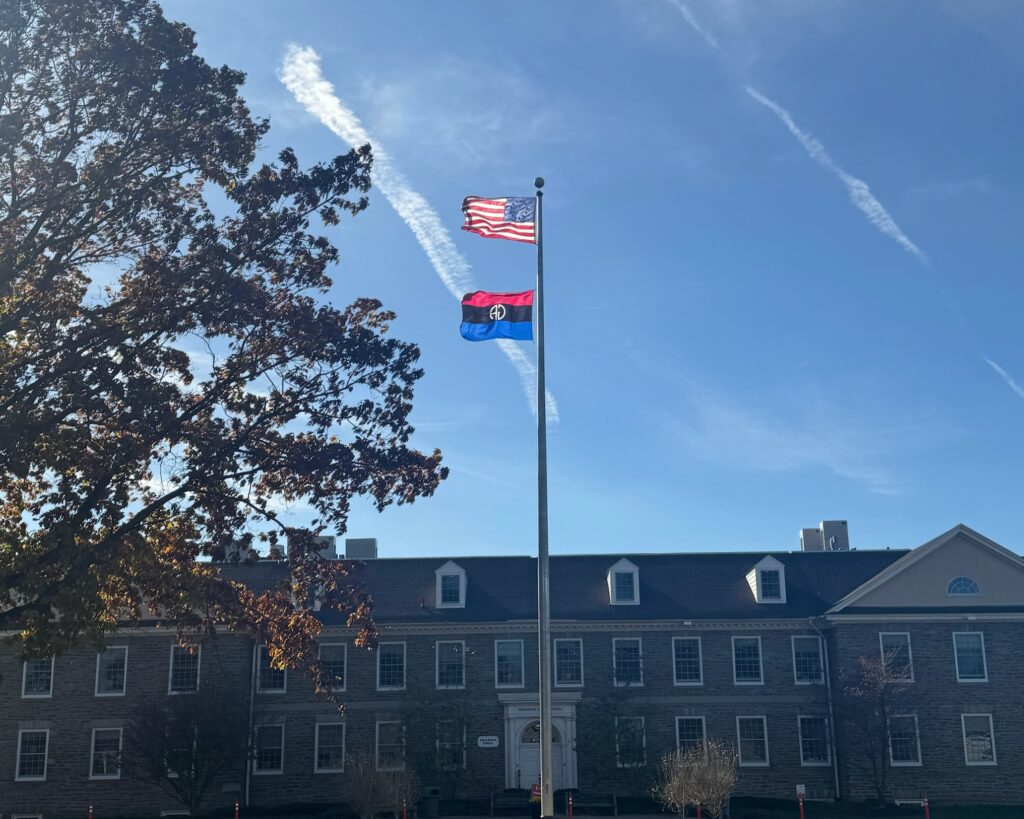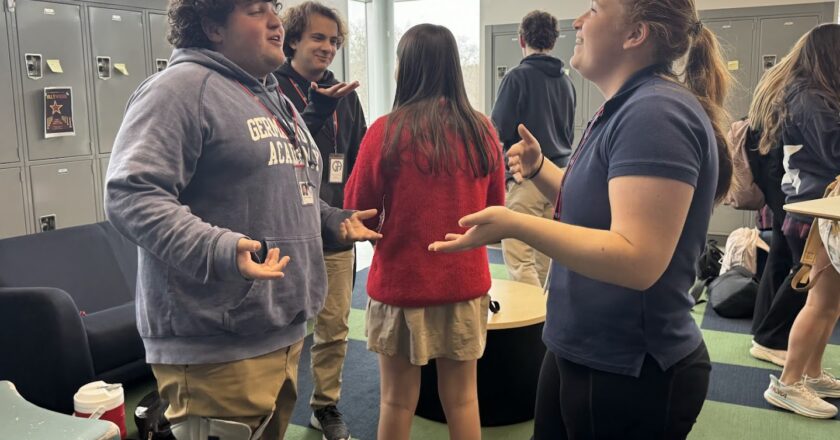For myself and many of my fellow juniors taking U.S History, our recent unit on political polarization within the U.S felt uniquely relevant following the 2024 presidential election season, a time when partisan hatred has never felt so personal or strong. As a result, many students at GA feel a need to avoid discussing politics or current events, fearing that it might lead to uncomfortable disagreement or conflict.
“The student body feels so polarized, so it’s difficult to facilitate those discussions,” Helen Liang ‘25 said. “It’s hard to talk about things without using words like Republican or Democrat or talking directly about Trump and Harris, and a big reason why people aren’t talking about politics is because they’re tiptoeing around these things.”
However, learning to have these difficult conversations and disagree with your peers and friends is a necessary skill to be able to engage with nuanced and contentious issues in the real world. Otherwise, students risk being insulated in uncertainty or a single viewpoint for their lives, contributing to polarizing relations and only exacerbating a harmful and dismissive culture around politics.
“GA is unique because most students don’t have the opportunity to go to school with kids who think differently from them,” Dr. Julie Kimmel, Upper School History Department Chair, said. “Within our student body, I would guess around 40% were hopeful that Trump would win, about 40% were hopeful that Harris would win, and about 20% maybe didn’t like either candidate or were disconnected from the process. That’s an incredible opportunity to really learn from each other, and I don’t know if we’re fully taking advantage of that right now.”
Moreover, this suppressive culture around political discourse contributes to a stigma surrounding interest in politics, where students often feel looked down upon by their peers for being interested in current events. Even during and after such an eventful election season, many students feel pressure to act disinterested.
For example, when the History Department sponsored a series of events during lunch and Community Time meant to increase awareness and get students talking about the election, the majority of students outwardly expressed disinterest or boredom. However, the anonymous feedback forms submitted afterward indicated otherwise.
“We got over 200 student responses to our feedback form on the [Community Time] workshops, and the majority of students said they were really interested in their workshop and that they thought we should do more things like that,” Dr. Kimmel said. “People might act like they’re not interested, but when they had an anonymous survey, they said they wanted more.”

It is a serious problem for GA student culture if a majority of students can only feel comfortable expressing their interests under a condition of anonymity. Moreover, continuing the stigma surrounding political discussions will ensure that students are ill-prepared to engage with our democracy after graduation.
Almost all current Upper School students will be of voting age by the next presidential election, and learning about and discussing current events ensures that students are well-informed from a variety of perspectives and able to engage civically within their communities.
“If we learned anything in this last election, it’s that voting really matters,” Dr. Kimmel said. “In some places, people were surprised by the results because people who didn’t normally vote came out to vote. In recent elections, young voters have been a really important deciding factor when elections are decided by small margins. Being ready to make choices when you vote is also another reason to be engaged because the voting age is right around the corner.”
While there is no easy fix for something so ingrained in political culture, not just in GA, students and faculty alike should make a concerted effort to have these discussions and bridge perceived gaps in interest. Students should react to political discourse with encouragement rather than rejection and proactively engage with both like- and unlike-minded peers. Faculty can similarly facilitate these discussions within their classrooms, even if it just looks like a quick five-minute conversation at the beginning of class.
“We should have more centralized and focused discussions, like learning about candidates from an objective perspective,” McKenna Miller ‘25 said. “The empathy interviews, for example, didn’t mention anything related to [the election], and I wasn’t free for any of the lunchtime [election issues forums]. I think a lot of people are dancing around the topic.”
Being able to dismiss a presidential election as unimportant and inconsequential for one’s daily life is both a privilege and an oversight that will prove detrimental to students’ ability to engage in our nation’s democratic process in the future. If students can learn now, in a safe, educational environment, to disagree and debate with others, they will be much better prepared for civic engagement once they leave GA.

